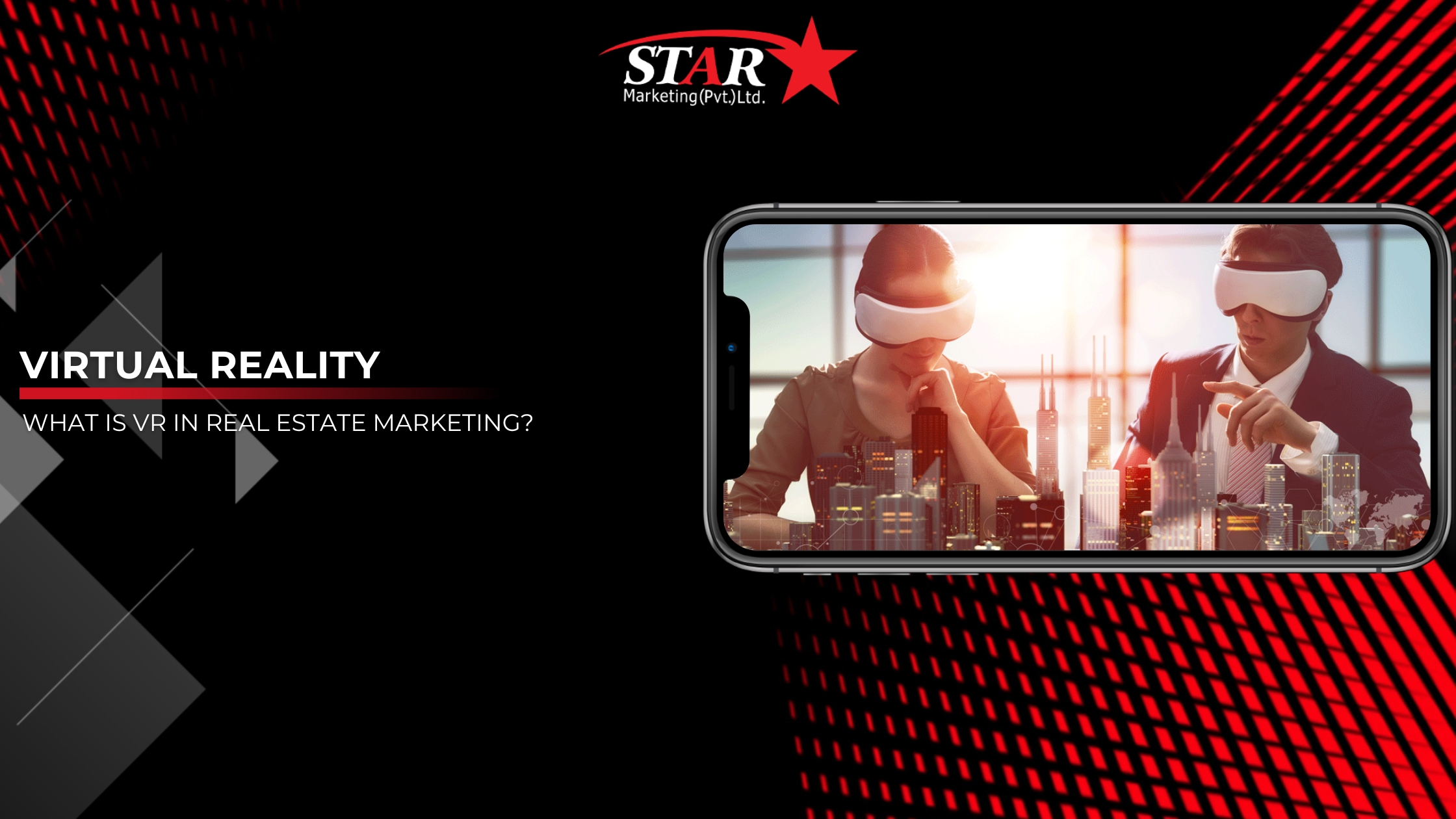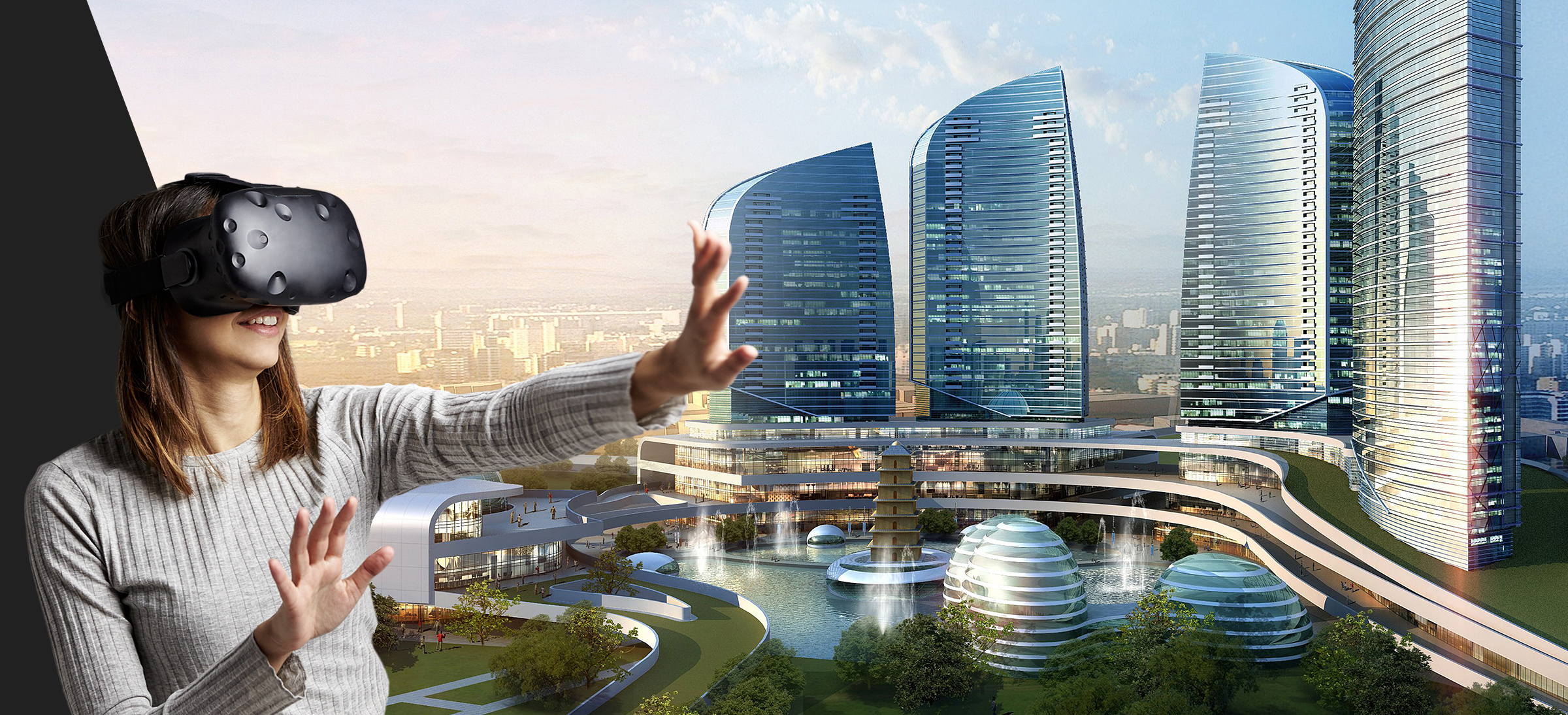
Virtual reality in real estate marketing has a creative, unforgettable impact on the industry. With this innovative, engaging, & immersive approach, this technology is giving discerning buyers a buyer’s chance to visit their dream home without moving from their couch. How amazing is it? In VR, you can see the property’s 3D module, take a keen look, and quickly evaluate the pricing. For example, with a VR and a headset, prospective buyers can virtually tour every room, terrace, lounge, & even the property’s swimming pool. They can scrutinise its features, take a stroll in the neighborhood, and feel the vibe of the house. Rather than relying on pictures alone, this virtual reality technology in real estate lets buyers influence more while expanding accessibility & engagement in the buying process!

Why is virtual reality getting famous in real estate marketing?
- Enhanced Accessibility:Virtual reality (VR) technology breaks down geographical barriers and increases the market reach of real estate agents and developers by allowing prospective purchasers to virtually tour properties from anywhere in the world.
- Time Efficiency:Getting the property selected with VR technology in real estate marketing lets you save time while boosting the efficiency of the project. No physical appearances, no prolonged routers, and no other hassle—just a VR tour, which will be enough to make you think.
- Improved Decision Making: Buyers can make better selections using VR to get a thorough knowledge of a property’s characteristics, layout, and potential by using the immersive and extensive virtual tours real estate companies offer.
- Increased Engagement: This tactic is enough to boost engagement in real estate marketing through the virtual walk-in buyer’s dream homes. With this advanced technology, the buyer can see themselves living, working, & relaxing in their future home.
- Showcase Properties under Construction:Through VR, the developers are most excited to showcase their properties that are still under construction. With the fictional 3D module, the investors are securing the units in off-plan real estate markets.
How does virtual reality impact real estate marketing?
Through immersive and interactive experiences for prospective buyers, virtual reality (VR) is transforming the real estate marketing industry. As technology progresses, virtual reality (VR) becomes an increasingly important tool in real estate marketing and sales. Its predicted expansion and integration with the real estate industry show the VR market’s significant impact.
Virtual reality (VR) gives prospective buyers a realistic and detailed image of a property from anywhere globally. This involvement increases customer engagement and gives them the power to make better decisions. VR further enhances the purchasing experience by allowing personalisation, which enables purchasers to personalise houses in real-time.
Furthermore, even more creative possibilities arise when virtual reality (VR) is combined with cutting-edge technology like augmented reality (AR) and artificial intelligence (AI). Chatbots with AI capabilities can lead buyers through virtual tours, and augmented reality (AR) projects virtual data onto the natural environment, offering insightful information.
VR generally democratises real estate purchasing by increasing accessibility and inclusivity for a larger pool of potential buyers. Early adopters of VR technology may offer a more dynamic and exciting real estate buying experience, giving them a competitive advantage. VR will change real estate marketing as it develops, making it more engaging, dynamic, and immersive for buyers and sellers.
Why should real estate agents opt for virtual reality technology?
Enhanced Property Presentations: Real estate brokers can now give immersive 3D tours thanks to virtual reality technology, which improves presentations by giving prospective purchasers a realistic and thorough look at properties.
Expanded Reach: Agents may break down geographical barriers and reach a broader market by using virtual reality (VR) to draw in potential purchasers from anywhere in the world.
Time Efficiency: Virtual reality tours allow purchasers to tour houses virtually whenever it is convenient, removing the need for several in-person visits to properties. This saves time for both the buyer and the realtor.
Competitive Advantage: Adopting virtual reality technology helps real estate agents stand out by demonstrating their creative thinking and dedication to providing clients with state-of-the-art solutions.
Increased Sales Potential: Agents can effectively engage prospective buyers, generate higher interest levels, and ultimately improve the likelihood of closing deals by providing immersive virtual reality experiences.
Conclusion
Since the world is transforming at a fast pace, so is real estate marketing! It’s high time to adapt to and indulge in this new technology of virtual reality. Virtual reality in real estate marketing saves time for realtors & buyers and boosts engagement & efficiency in the buying & selling process. Without being limited by in-person inspections, prospective purchasers can thoroughly inspect properties from the comfort of their own homes, acquiring a comprehensive grasp of the layout, style, and atmosphere. Realtors may use virtual reality (VR) to exhibit more elegant and in-depth properties while generating actual interest and excitement. Those who adopt virtual reality (VR) will be well-positioned to prosper in the constantly changing real estate marketing environment as we move forward into this exciting future.



Leave a Reply